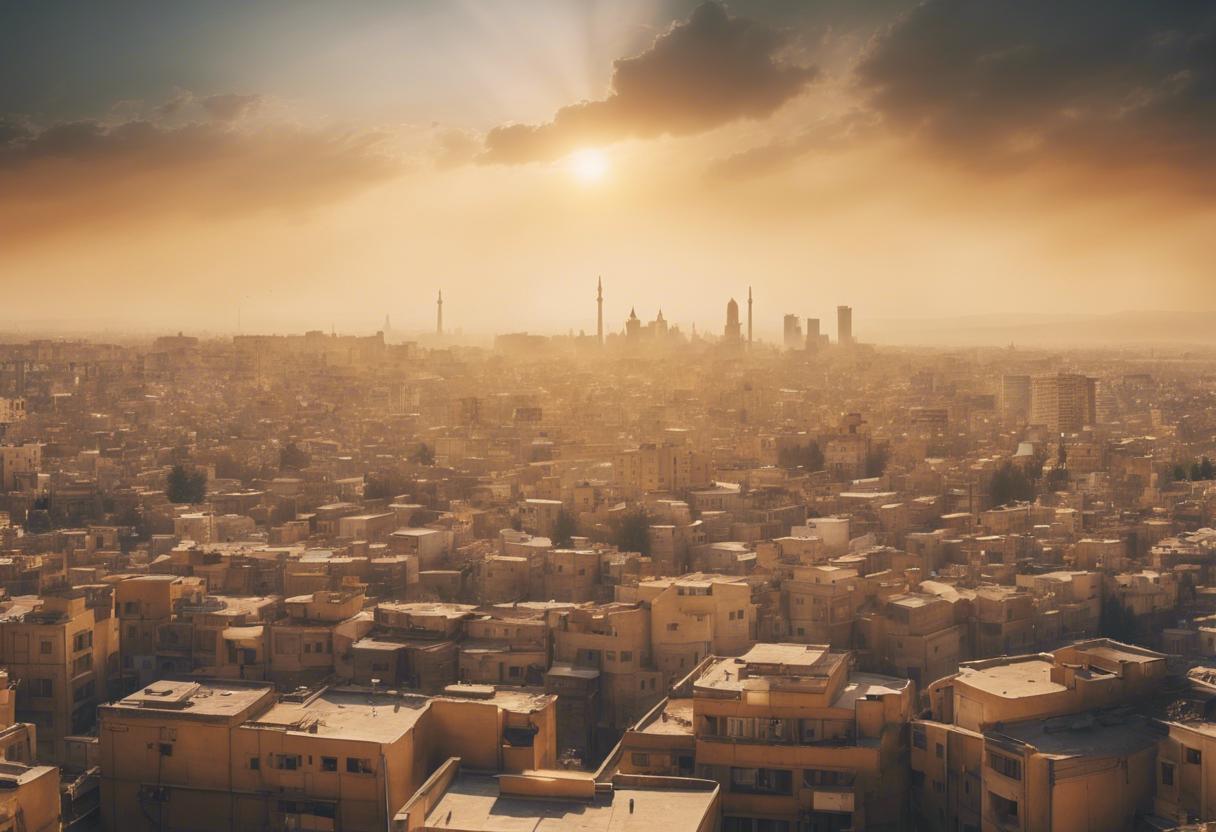Iran’s reformist president, Masoud Pezeshkian, who assumed office in July, has moved swiftly to assure Hizbullah of Iran’s unwavering support despite concerns within the group about Tehran’s cautious response to Israel’s bold operations in Lebanon. An ambitious objective of initiating a fresh period of foreign policy, centred around rebuilding bridges with Western countries and relieving sanctions on the Islamic state to bolster its economy, has been outlined by Pezeshkian.
The importance of dodging a direct conflict with Israel is viewed as paramount to this ambition, even though Pezeshkian acknowledges Israel’s attempts to goad Tehran into war. However, Israel’s escalating attacks on Hizbullah, a significant ally of Iran in the region, have posed a serious challenge to this new tactic.
Tehran has been prompted to dispatch emissaries to Beirut to quell concerns that they have abandoned Hizbullah. This comes after a series of crippling hits, including some of Israel’s deadliest air strikes in Lebanon in years have been delivered, according to insiders. A senior figure within the regime shared with the Financial Times that Tehran has sought to soothe these worries, clarifying that the lack of intervention in support of Hizbullah aligns with immediate objectives.
The insider, who is allies with the reformists, stated,”What we are seeing is a subtle shift in tactics, rather than an alteration in our fundamental strategy towards the axis of resistance. Some key issues are being temporarily shelved for more pressing ones. This is the cost incurred when you recalibrate your strategy in battle”.
Meanwhile, the military chief of Israel instructed soldiers to be on standby for a possible land attack against Hizbullah in Lebanon. This follows several thousands strikes on militant group positions and the assassinations of several of its leaders.
Sensing a growing sense of neglect from Iran, supporters of Hizbullah and Shia Muslims in Lebanon feel the absence of Iran’s protective influence. Hizbullah follower, Mahmoud based in Beirut, questions the waning Iranian aid, despite the perceived brotherhood.
Following Tehran’s announcement of its readiness to discuss its nuclear programme with the West, independent Lebanese MP, Mark Daou, posted on X, highlighting the negotiations occur at their peril.
The Grand Ayatollah, Ali Khamenei, controls Iran’s regional and foreign policies, along with the influential Revolutionary Guards. Nevertheless, the conciliatory posture of Pezeshkian signals a shift in Iran’s immediate priorities.
For years, Iran has been involved in a covert war with Israel by way of its relationships with Hizbullah, Hamas, Yemen’s Houthis, and Iraqi Shia militias. Despite no significant changes in their primary strategy of leading this alliance, Iran has allowed Pezeshkian to deter conflict and explore the possibility of renewing the 2015 nuclear deal.
At the recent UN General Assembly in New York, Pezeshkian expressed his readiness to initiate dialogue with nations that signed the nuclear agreement, known as the JCPOA, which the US withdrew from.
However, increasing Israeli incursions have raised alarm within the Islamic regime, heightening worries about Israeli spying and potential disruption within Iran. Circumstances worsened when Hamas’s political head, Ismail Haniyeh, was allegedly killed in a suspected Israeli assault in Tehran, soon after gracing Pezeshkian’s inauguration. This major security breach was deeply humiliating.
Last week, an explosion destroyed thousands of Hizbullah’s communication equipment, further unsettling Iran. After Hizbullah’s devices exploded across Lebanon, Iranian advisors promptly arrived in Beirut to manage the situation, investigate the incident, and evaluate the threats posed to devices used by Tehran and its allies. They were guided by individuals with intimate knowledge of the situation.
Senior officials in Iran were instructed to have their communication devices examined for safety considerations, per Iranian authority sources. The incident cast a shadow of suspicion and fragility in their systems, leaving many to consider a potential breach. The tense atmosphere between Iran and Israel elevated after Hamas initiated an assault on October 7th. Iran initiated the inaugural direct offensive against Israel on home ground in April, dispatching over 300 drones and missiles, a response to an Israeli aggression against their embassy in Damascus which led to the demise of top leaders.
An exploration into the troubled history between Hizbullah and Israel.
However, Iran refrained from retaliation following the assassination of Haniyeh, despite an oath for revenge. An individual close to extreme factions indicated that Iran was in a precarious position as its hesitance in intervening to aid Hizbullah allowed Israel to overstep its bounds. While there were rumours of a conflict between Iran and Hizbullah, the person rejected them as unfounded and disconnected from reality. Even amidst this, the regime planned to continue its strategy of constraint.
“Iran wishes to negotiate the situation in such a matter that it precludes its involvement as there is a desire to establish ground for discussion with Western nations,” another official stated.
While Iran may hold off direct interference, allied forces could still aspire to do so. In the initial stages of the Gaza unrest, Shia militias from Iraq launched a spate of attacks against US troops present in Iraq and Syria, offering manpower and weaponry assistance to Hizbullah.
An affiliate expressed their intent to aid Lebanon, but due to Iran’s concern of an escalation, they decided to delay action. Saeed Laylaz, an Iranian political economy reformist analyst, conceded that while Khamenei’s tactic is to tactfully pressure Israel, the financial muscle to sustain high-cost warfare is absent in Iran. He also stated that even if Iran’s aligned forces anticipate involvement, it would likely only cause brief dissatisfaction.
This article is protected under copyright of The Financial Times Limited 2024.

